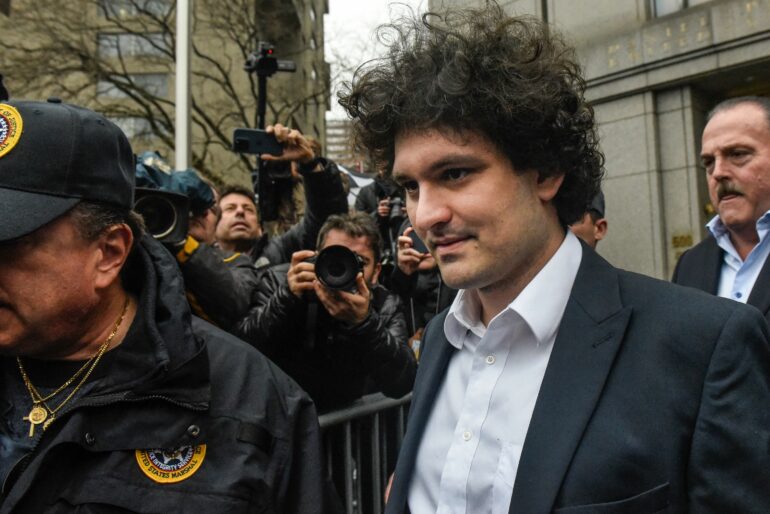NEW YORK – MARCH 11: Game show host Chuck Woolery appears at a programming event at the W Hotel … [+] March 11, 2003 in New York City. Game Show Network advertisers had the opportunity to play the game Lingo as hosted by Chuck Woolery. (Photo by Game Show Network via Getty Images)
Chuck Woolery, the affable, smooth-talking game show host turned right-wing podcaster—known for accusing the government of lying about the Covid-19 pandemic—has passed away at the age of 83. Woolery’s podcast co-host and friend, Mark Young, shared in an email early Sunday that Woolery died at his home in Texas, with his wife Kristen by his side, after experiencing breathing problems.
Despite some of Woolery’s controversial and highly disturbing comments over the years, he remained adored by many. This raises an intriguing question: Why? What allowed him to maintain such enduring appeal despite the backlash he faced? Exploring this paradox reveals much about his charisma, adaptability and the enduring power of reinvention.
There’s no doubt that Chuck Woolery was more than just a game show host—he was an entertainer who understood how to engage audiences and build a personal brand. He was a master at the nuances of human interaction and a man of endless reinvention.
Best known as the original host of Wheel of Fortune and for his witty banter on the wildly popular dating game show Love Connection, Woolery’s career highlights included hosting television staples like Scrabble and Lingo. Yet, he didn’t stop there. Woolery ventured into new territory with his podcast, Blunt Force Truth, where he voiced conservative opinions that sparked both controversy and loyalty among his audience.
Game-show Host Chuck Woolery (R) having fun with fellow game show host Todd Newton at the Worldwide … [+] Web Games Championship, September 9, 2006 in Los Angeles, California.
Woolery’s career began in music, where he co-wrote songs and performed with The Avante-Garde, a folk-pop band that earned a Top 40 hit. He even released a debut solo single before transitioning into television. His outspoken political commentary later in life further expanded his influence, sparking debates and earning him a polarizing place in cultural conversations.
Whether shaping the reality dating genre, making waves with his political views, or mastering the art of live hosting, Woolery consistently reinvented himself to stay relevant.
Behind the camera, Woolery’s life was as colorful as his career. From his beginnings as a truck driver to auditioning for television, he became a symbol of resilience and adaptability. His ability to pivot—whether from hosting Greed to discussing chances for reelection on his podcast—underscored his knack for navigating challenges and aligning with the moment’s demands.
Woolery exemplified traits that are just as essential in a boardroom as they are on a game show stage. Here are some of the key lessons leaders can draw from his remarkable journey:
Decision-Making Under Pressure
Game shows thrive on unpredictability, and Chuck Woolery, like any seasoned leader, consistently rose to the challenge. Whether calming nervous contestants or steering a live show through unexpected mishaps, Woolery exuded confidence and poise. His decision-making abilities shone not only on-screen but throughout his career.
Before becoming a television staple, Woolery pivoted from his early musical ventures—playing double bass in a folk trio and later forming the psychedelic rock duo The Avant-Garde in 1967—to hosting some of America’s most iconic game shows. Later in his career, he seamlessly transitioned into conservative commentary, identifying as a gun-rights activist and becoming a vocal presence in the political arena.
Despite Wheel of Fortune never quite matching the ratings success of Jeopardy! in its heyday, Woolery’s instincts were unshakable. He famously demanded a raise to $500,000 a year—equal to what host Peter Marshall was making on Hollywood Squares. When his demand wasn’t met, Woolery made the bold decision to leave the show, underscoring the decisiveness and confidence he carried throughout his career. Such moments highlight the kind of instinctive leadership responses necessary for navigating uncertainty, whether on a stage or in today’s high-pressure environments.
As a legendary game show host, Woolery also had a unique talent for avoiding the “urgency trap” — a common leadership pitfall where the pressure of juggling too many demands results in rushed, counterproductive decisions. This paradox undermines critical thinking, the very skill leaders need to remain innovative, efficient, and effective. Woolery’s ability to step back, think critically and act intentionally — even when the stakes are high. exemplifies the balance leaders must strike today.
Studies emphasize that while decisiveness is crucial, leaders must pair it with reflective analysis to navigate complex challenges effectively. For example, findings published in the Harvard Business Review reveal how leaders who avoid urgency-driven decisions foster better innovation and long-term success. Woolery’s ability to balance thoughtful analysis with action is a powerful lesson for leaders managing polarized environments or addressing fears of retribution within their organizations.
LOS ANGELES, CA – OCTOBER 22: Host of the Game Show Network Show, Lingo Chuck Woolery poses on the … [+] set October 22, 2003 in Los Angeles California. (Photo by Carlo Allegri/Getty Images for the Game Show Network)
The Art Of Empathy
There is no doubt that Woolery’s genuine ability to connect with people, whether contestants or audiences, was his true superpower. His apparent humor and warmth had a way of making even the most nervous contestants feel at ease, despite the high stakes of game shows. Mark Young, his podcast co-host and close friend, often reflected on Woolery’s rare gift for understanding others—a skill he carried into his later years as a conservative commentator on the podcast Blunt Force Truth.
This empathy wasn’t limited to the stage or microphone. Stories from people who knew him, such as David Bender and Kim Barnes, illustrate a man defined by kindness and humility. Woolery was described, above all else, as a genuine person—an increasingly rare quality in today’s world of public figures.
This insight feels particularly relevant in our current environment, where the polished images of public figures frequently unravel. Many have been trained to present themselves as one thing in front of the camera, only to be revealed as something entirely different behind the scenes.
As I emphasize in my book, The Kim Kardashian Principle, this growing disconnect erodes trust and underscores the importance of authenticity—a quality leaders and public figures alike must learn to embrace to build lasting credibility and connection, regardless of whether others agree with their opinions. Think of Elon Musk: polarizing yet undeniably authentic. Authenticity, whether it invites admiration or criticism, is a cornerstone of trust.
Leaders can learn from Woolery’s approach. His ability to listen deeply and understand others was instrumental in fostering loyalty and collaboration. In the workplace, this approach translates into creating an environment where team members feel valued and supported.
Woolery’s gift for connecting also serves as a reminder of the importance of identifying and nurturing potential mates—not just in the romantic sense as seen on his shows but also in forging meaningful professional partnerships. His legacy demonstrates that leadership involves balancing empathy with authenticity, creating relationships that stand the test of time.
LOS ANGELES, CA – OCTOBER 17: Host Chuck Woolery (L) talks to Miriam (C) and Lauren, Playboy … [+] Playmates who were contestants on the gameshow Lingo October 17, 2003 in Los Angeles, California. Lingo is the highest original program on the Game Show Network. (Photo by Carlo Allegri/Getty Images for Game Show Network)
Crafting Memorable Messaging
Few hosts are as closely associated with a signature as Chuck Woolery is with his iconic “back in two and two.” Britain’s game show host Bruce Forsyth had “three two one.” This catchphrase was more than a quirky sign-off; it became a cornerstone of his approachable brand—much like his impeccably coiffed hair—and helped make him unforgettable to his fans.
Woolery’s ability to create engaging stories around contestants and their journeys transformed game show moments into captivating television, showcasing his talent as a master storyteller.
In today’s media-saturated environment, leaders that develop memorable messaging and compelling storytelling will better their chances of standing out. Woolery’s storytelling prowess contributed to his almost matinee idol status, surpassing his peer television icons like Pat Boone and Vanna White. His knack for weaving narratives not only elevated his career but also demonstrated how storytelling can be a tool to forge deep connections with audiences.
Many of you know I’ve spoken before about the power of storytelling in building strong brands. And research supports it. A study published in the International Journal of Applied Research explores how storytelling contributes to a powerful brand identity, using Coca-Cola as a prime example. The study highlights that effective storytelling creates a compelling and memorable narrative that resonates with audiences, fosters loyalty, and provides a competitive edge in the market.
Woolery’s ability to craft engaging narratives set a benchmark for leveraging storytelling to enhance personal and professional brands. His legacy offers a valuable lesson: in a world where attention is scarce, the ability to tell meaningful stories is an indispensable asset for building enduring relationships and standing out from the crowd.
BEVERLY HILLS, CA – MARCH 19: TV hosts Chuck Woolery, Bob Eubanks and Chris Harrison attend the WE … [+] tv presents “The Evolution of The Relationship Reality Show” at The Paley Center for Media on March 19, 2015 in Beverly Hills, California. (Photo by Alberto E. Rodriguez/Getty Images)
Balancing Stakeholder Expectations
The role of a game show host is a delicate balancing act, and Chuck Woolery mastered it with remarkable precision. Catering simultaneously to contestants, producers, advertisers, and audiences, he skillfully managed competing priorities while ensuring smooth transitions, high ratings, and consistently engaging entertainment. This ability not only defined his success but also cemented his reputation as a trusted figure in the television industry.
Woolery’s adaptability was evident in moments such as navigating the logistical challenges of various segments or gracefully handling the awkwardness of contestants discussing potential mates on Love Connection.
With humor, tact and professionalism, he effortlessly pivoted between the expectations of producers, participants and viewers — all while preserving a sense of human connection. His ability to keep everyone engaged without losing authenticity showcased a rare and invaluable skill.
This adaptability extended far beyond television. Woolery transitioned into conservative commentary later in his career, contributing to platforms like Fox News and Conservative Brief.
Here, he adjusted his tone and approach to connect with an entirely new audience, demonstrating the versatility required to remain relevant in an evolving media and cultural landscape. He knew what it took to stand out. His willingness to embrace reinvention while staying true to his core identity highlights a leadership quality that resonates far beyond the entertainment world.
The ability to manage diverse stakeholder interests is just as crucial for effective leadership. Research published in the Journal of Business Research underscores that prioritizing stakeholder engagement and practicing transparent communication fosters trust, cooperation, and long-term success.
In today’s Gen Z-driven world, Woolery’s approach offers interesting lessons for leaders. His ability to balance competing demands, maintain authenticity across shifting landscapes, and foster trust through adaptability underscores the timeless value of clear communication and human connection in achieving lasting success.
Actress Jo Ann Pflug and game show host Chuck Woolery attend Avon Tennis Tournament Reception on … [+] March 2, 1981 at the Forum in Los Angeles, California. (Photo by Ron Galella/Ron Galella Collection via Getty Images)
Poise In The Spotlight
Chuck Woolery’s calm demeanor was a defining feature of his hosting style, but it also became a guiding principle throughout his personal and professional life.
When faced with a devastating motorcycle accident that might have derailed others, Woolery displayed the same resilience and composure that defined his career. His ability to maintain stability during setbacks is a hallmark of leadership, demonstrating the importance of projecting confidence and grace, particularly in uncertain times.
In his later years, venturing into conservative podcasting, unapologetically addressing polarizing topics such as the “hypersocialist road” or “hiding snowflakes.” Even when tackling contentious subjects like Soviet Communists or the challenges faced by medical professionals during the pandemic, Woolery was unafraid to lose his characteristic charm. His willingness to engage in these debates without losing his poise exemplified his knack for addressing serious and divisive issues with confidence.
As I emphasize in my book, The Kim Kardashian Principle, strong brands are built on strong points of view. Woolery embodied this philosophy to perfection. He was unapologetic and unafraid, steadfast in his beliefs, and deeply committed to creating what he envisioned, regardless of potential backlash. His ability to focus on his convictions and stand firm in the face of criticism is a reminder of the power of authenticity and boldness in building a lasting, impactful brand.
Woolery’s journey illustrates that leaders and brands don’t shy away from challenges or controversy—which ever side of the argument you stand on. Instead, they embrace their identity, leveraging it as a source of strength to connect with their audience and leave an enduring legacy. In the process they transcend fans and develop fanatics, those who are deeply engaged with their brand. His commitment to his values underscores the importance of staying true to oneself, a lesson that remains relevant for leaders across industries.
BILOXI, MS – JUNE 22: Game show host Chuck Woolery speaks in support of Republican candidate for … [+] U.S. Senate, Mississippi State Sen. Chris McDaniel during a Tea Party Express campaign event at outside of a Hobby Lobby store on June 22, 2014 in Biloxi, Mississippi. Tea Party-backed Republican candidate for U.S. Senate Chris McDaniel, a Mississippi state senator, is locked in a tight runoff race with incumbent U.S. Sen Thad Cochran (R-MS) who failed to win the nomination in the primary election. (Photo by Justin Sullivan/Getty Images)
The Power Of Adaptability
Chuck Woolery’s career—from hosting iconic game shows to radio commentary and starring in his reality show Naturally Stoned—illustrates the critical importance of reinvention. Before becoming a television staple, Woolery studied at Morehead State University and pursued a music career, co-writing songs a. His ability to pivot was a defining feature of his career, whether hosting the high-stakes game show Greed or tackling political topics like chances for reelection on his podcast. This flexibility was foundational to his longevity and relevance in entertainment and beyond.
Woolery’s adaptability not only enabled him to thrive across decades but also allowed him to influence entire genres, especially on his 11-year run as host of TV’s ‘Love Connection,’ paving the way for future hosts like Vanna White to leave their own marks. His ability to evolve with cultural and industry shifts highlights a vital leadership characteristic: the willingness to embrace change and respond to new opportunities.
Research underscores the value of this trait. The Harvard Business Review identifies adaptability as an essential skill for navigating shifting priorities and maintaining relevance in dynamic environments. Woolery exemplified both principles, seamlessly bridging roles and connecting with diverse audiences through skill and authenticity.
In this regard, Woolery’s career serves some important lessons for modern leaders. His ability to pivot not only ensured his resilience but also created opportunities to remain relevant and impactful over decades. For leaders today, adaptability is no longer optional—it is essential for thriving in an environment defined by constant change. Woolery’s career is a testament to how reinvention can transform challenges into opportunities and ensure enduring success.
LOS ANGELES – FEBRUARY 10: Celebrity husbands and wives on the gameshow, TATTLETALES. From left: Jo … [+] Ann Pflug and Chuck Woolery, Betty White and Allen Ludden, host Burt Convy, Pat Harrington and Marjorie Harrington. Image dated February 10, 1974. (Photo by CBS via Getty Images)
Lessons From The ‘Wheel Of Fortune’
Chuck Woolery leaves behind more than a legacy of entertainment; he provides clear lessons in leadership for a continually evolving world. His career exemplifies the power of reinvention, clear messaging, and authentic connection. A study published in the Journal of Leadership & Organizational Studies identifies adaptability as a key predictor of long-term career success. Leaders who cultivate a mindset of continuous learning and are open to reinvention are better equipped to navigate dynamic markets and cultural changes—a trait Woolery consistently demonstrated across decades. His ability to manage expectations while captivating audiences offers valuable insights for leaders navigating dynamic landscapes.
Whether it was sparking cultural debates, shaping reality dating genres, or captivating audiences with witty banter, Woolery’s influence extended far beyond the game show stage. His combination of charisma, resilience, and reinvention made him a magnetic figure in the cultural zeitgeist—one whose impact will inspire and spark conversations for years to come.
From his early days performing with The Avante-Garde to tackling polarizing topics with podcast co-host Mark Young, Woolery navigated every phase of his career with humor, accountability, and purpose. He exemplified the courage to adapt and thrive in an ever-changing landscape.
His legacy serves as a guide to leadership: balancing decisiveness with empathy, crafting consistent messaging, and embracing reinvention. Woolery’s story reminds us that inspiration often comes from unexpected places—even a game show host with a knack for balloon rides, witty catchphrases, and a legion of juice-box-drinking critics.
Leaders today can learn much from Woolery’s skills. To be genuine, adaptable, and unshakable is to embody the essence of leadership. Whether in a boardroom or under the spotlight, leaders make every moment count—just as Chuck Woolery did. Rest In Peace.
Named Esquire’s Influencer Of The Year, Jeetendr Sehdev is a media personality, international speaker and the author of the New York Times bestselling sensation, The Kim Kardashian Principle: Why Shameless Sells (and How to Do It Right.)
Note: This article have been indexed to our site. We do not claim legitimacy, ownership or copyright of any of the content above. To see the article at original source Click Here













